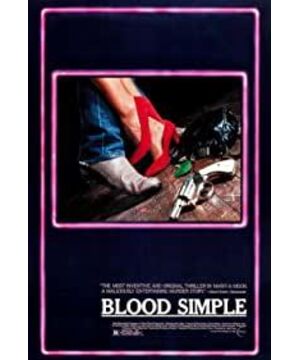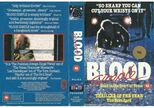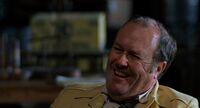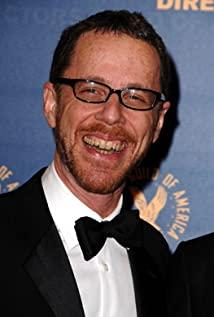/ Organized by Fan Daming /
Time: December 3, 2011 (Saturday) 11:00-11:40
Venue: Henglu Art Museum Lecture Hall, No. 202 Nanshan Road, Hangzhou
(Henglu Art Movie bar "Coen Brothers Movie Month" and "Blood Maze")
Moderator: Fan Daming
Participants (preface): Fan Daming, He Ji, Chen Xingsheng, Su Guanhua, Zhang Liheng, Zhang Aibai, Wu Wei, Zhang Lina, Wang Gang, Zhuang Pingping, Niu Yuzhu, Pang Jian, Wang Shujin, Fang Yonggen, Zhan Minsheng, Chi Yunfei, Ji Boqing, Chen Jianping, hammi, Liu Haiqing
Record: Liu Haiqing, Fan
Daming: "Blood Maze" is the debut film of the American director Coen Brothers in 1984. It became famous in one fell swoop. The brothers are basically a screenwriter and a director. Their later film, No Country For Old Men, won four awards at the 80th Academy Awards. "Blood Maze" invested 800,000 US dollars, which is considered a small production. China Zhang Yimou's "Three Guns and Paan the Action Surprise" is based on this. It is said that Zhang Weiping spent 2 million US dollars to buy their copyright. The brilliance of the film lies in the complexity and mystery of the structure of the story, which is confusing and confusing. It is a suspense film with a case in a case.
He Ji: But the relationship between the characters is relatively simple and easy to understand. In a word: it's all the ghost of the private detective. The detective's idea was "the lesser of two evils", and he felt that it would be better and simpler to just kill the boss. Boss Marty's death is self-inflicted. That guy Rey is loyal and loyal, and his behavior is subjectively to wipe the butt of his lover, the boss's wife, Abby.
Chen Xingsheng: The worst thing is a detective who asks for money and kills people. The last three men are dead.
Van Damien: It's a black film. As the murder weapon, the gun is the most critical prop. It is the first anniversary gift of the wedding that the boss bought for Abby (Abby mentioned at the beginning of the film), and it only contains three bullets. And an interesting key plot is: the gun was later returned to the pocket of the boss Marty, Marty took out the gun before his death and fired three shots at his love rival Ray, but these three shots happened to be in the same place. Three gaps in the six-rounder (if he still has the strength to fire a fourth shot, the whole movie story will be rewritten). Three shots or three live ammunition is like this: The detective stole Abby's pistol and shot (killed) Marty, which was the first shot; Rey entered the scene and accidentally kicked the gun on the ground and went off, which is another One shot; the last one is Abby using it to kill the detective who came to the house (she thought it was her husband Marty at first). Lao He said that the boss's death was self-inflicted, and the same is true from the perspective of this "gun": Marty was killed by the "gun" he bought.
Su Guanhua: I think the conflict or bloody case in this film is caused by "red apricots out of the wall". Using the pistol as a symbol, it describes the fear of death and the contradictions in their choices of various characters. For example, Abby was worried about what her husband Marty had said about "a tick for a tick"; Marty also considered for a long time whether to kill the two of them; Rey and the detective also murdered in the process of hesitation. But because everyone doesn't know the truth, and the whole plot develops from it, the movie is wonderful.
Chen Xingsheng: I didn't understand until I saw it. Elements of Hollywood movies: erotica, money, violence, everything. Conflicts are also concentrated in various ways: between lovers, between husband and wife, between detectives and employers. The screenwriter sees through things in the world, and the work has the power to work. China's current films are so-so, not as good as foreign ones. In addition to institutional reasons, the main reason is that the screenwriter's ideas can't keep up. The central government also realized that it proposed the "three closeness", but due to the constraints of national culture, system, and both sides of human nature, innovation is still not enough. Zhang Yimou likes to "steal the beam and replace the column". His "Three Guns" can imitate and learn from foreign good things. It should be said that it is not bad.
He Ji: Most of what we imitate is the skin. Watching spy war dramas recently, whether it's "The Tip of the Knife" or "Broken Thorn", it's all a routine: a beautiful woman with a few bandits beside her.
Zhang Liheng: I think this film is a bit thinking about the unreasonable side of the marriage system and criticizing the constraints of monogamy. As a result, the lives of the three men were all tied to one woman's extramarital affair.
Zhang Aibai: I think the film at least reflects the complexity of human nature. For example, the boss, Marty, saw the fake photo of the two being killed and believed it to be true, and walked away sadly, feeling sick.
He Ji: He regrets it: he has to pay again, and he has no wife.
Wu Wei: Our country's literary and artistic works often punish evil and promote good, while foreign works seem to have a duality. Everyone in the film ends up with murder: the boss Marty buys the murderer; Rey buries Marty alive, and he feels guilty that he wasn't dead when he buried Marty; Abby shoots and kills the detective even though she Mistaking it for her husband, she fired the shot anyway. (Van Daming insert: Abby is more self-defense.) The director is not afraid to tap the evil side of human nature. So what is the film trying to convey?
Van Damming: There should also be commercial reasons for Hollywood.
Zhang Aibai: I'm curious: why does the protagonist use this actress? Not pretty.
Zhang Lina: I think this movie takes off the man's kindness. The boss's economic conditions are quite good. You can see that Abby's clothes and bags are all in rows. Maybe the boss used to belong to the type of gangster who can be classified as a bad guy. Detectives are greedy. Rey felt sick in the car listening to Matthew's Gospel. He wanted to bury Abby's gun along with Marty, but he finally got it back. Only the black guy counts the positive image. I think Abby actually loves her husband more because there is a recurring picture of them getting married. This film also has a bit of "red-faced calamity" meaning.
Wang Gang: It's my first time here. I think the storyline seems to be a real reproduction, very realistic, but I don't know the direction of the director, who is good and who is bad. It seems too realistic and not ideal enough. (Interlude Van Damming: The story should be fictional, but it is realistic and good-looking in terms of presentation techniques.) Rey is relatively positive, at least he kills for his lover and not for himself. There are often some close-ups in the film, such as the lighter pressing under the fish, the gun with three bullets, etc. There are many details of these before and after.
Zhang Lina: Well, for example, the detective was sweating when he wanted to kill one or two, and the last scene of dripping from the water pipe.
Wang Gang: But in general, after watching the film, people feel more depressed.
Wu Wei: I think it is very unreliable that Rey buries Marty's body in a farmer's field.
Crowd: This just shows that he is unprofessional in killing people, and he is not a bad person.
Zhang Aibai: There is a detail: on the way to bury Marty, the black round thing that keeps appearing on the upper right side of the car, what the image is, I don't understand.
Fan Daming: I didn't notice that.
Zhuang Pingping: The State Administration of Radio, Film and Television has too many restrictions. What can be filmed can only be good and positive, and many cannot be made. Therefore, most of the good films we think are foreign.
Niu Yuzhu: Hollywood films are mostly genres. The Coen brothers are typical examples of anti-typing. They are used to expressing the daily life of citizens, ordinary people or the middle class in American society in a playful and comical noir way. Every director has certain preferences. For example, there are those who like to adapt science fiction and comics. Oliver Stone is about politics, while the Coen brothers' films are mostly about money and emotion. Some people say that this actress is not beautiful, but in fact, she is really used by the Coen brothers. Their films don't need handsome men and beauties, just ordinary, or even ordinary to a little ugly. Later, she collaborated with the director brothers in many films (such as "Miller's Crossing", "Frozen", etc.); she acted very well and very naturally.
Van Damming: Francis McDormand, who plays this heroine, is not simple. He belongs to the star of acting, and later became the wife of Joel Cohen, one of the directors. "Blood Labyrinth" is quite possibly the best of our five picks this month. I also have a relatively new film by the two of them, "Thunderbolt". After watching it, I thought it was a bit bland. It turned into a Western style and lost the most fundamental characteristics of films like "Blood Labyrinth".
Wang Shujin: If you want me to say, the feeling after watching the film is: I want to learn detective. His idea is to be good at capturing all kinds of contradictions and using them to solve specific problems.
Fan Daming: If it is not for moral evaluation, but in terms of the relationship and role of the characters in the film's structure and conflicts, the private detective is indeed a key figure in the film, and he is a character who runs through the entire film. .
Wang Shujin: The shortcomings of the film, I think, are: In the five characters, at the end, the black man who is the image of justice should get together with the boss's wife, Abby, and this will be complete. (Audience: Laughter)
Fan Daming: Everyone expresses their opinions and talks well, thank you. We talked about this today, see you next Saturday!
Organized on December 6, 2011
View more about Blood Simple reviews










